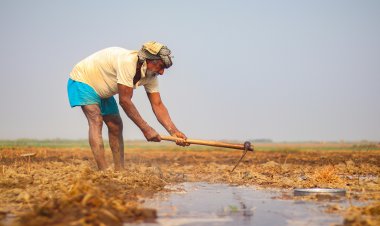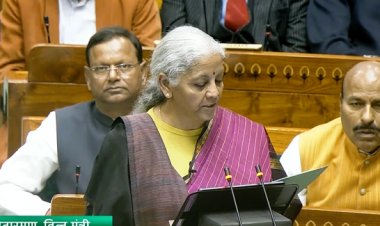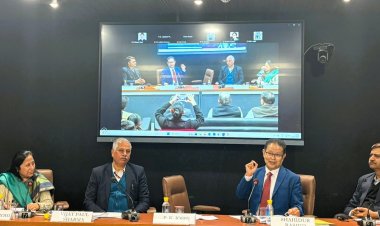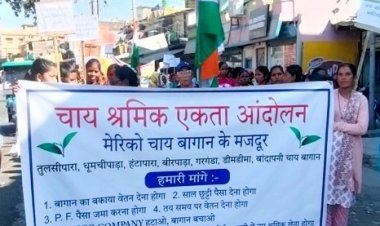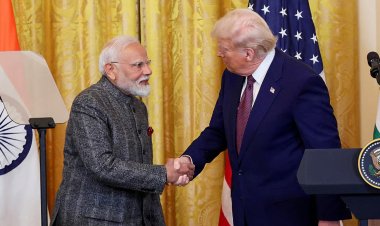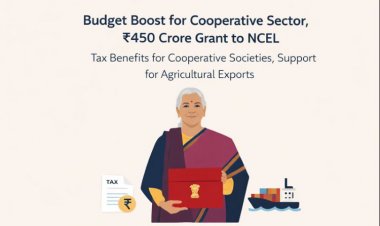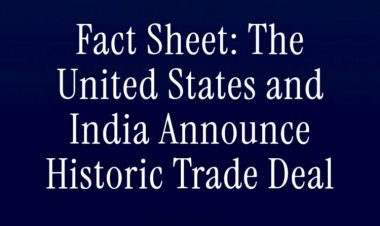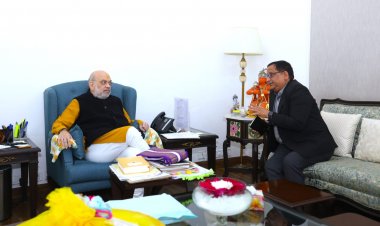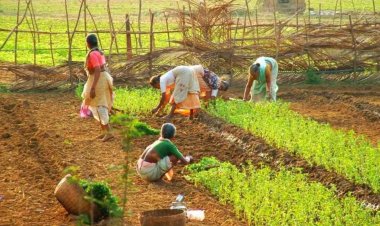Not fully satisfied with the govt proposal, SKM to decide future of the movement in its Wednesday meeting
The government did not hold any meeting with the five-member committee formed by the SKM, but the latter did receive on Tuesday the government’s proposal regarding the farmers’ demands. However, the SKM is not fully satisfied with the proposal. The government will be apprised of the issues of the proposal to which the SKM does not agree so that it may rethink the proposal. The SKM meeting at 2 pm on Wednesday may prove decisive for the future of the movement.
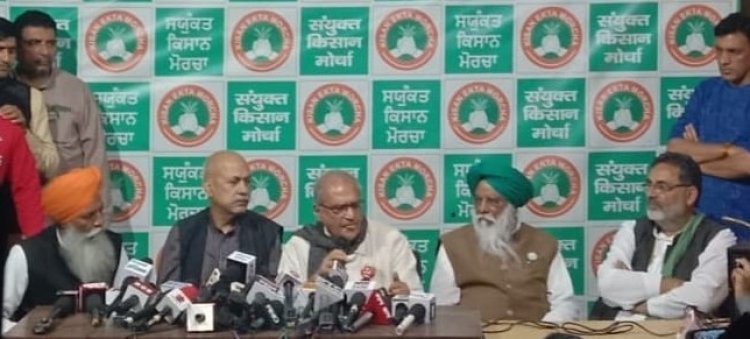
The government did not hold any meeting with the five-member committee formed by the Samyukt Kisan Morcha (SKM), but the latter did receive on Tuesday the government’s proposal regarding the farmers’ demands. However, the SKM is not fully satisfied with the proposal. The government will be apprised of the issues of the proposal to which the SKM does not agree so that it may rethink the proposal. A long discussion was held on the government’s proposal in the SKM meeting on Tuesday but SKM does not agree to the conditions attached to the proposal. However, it hopes to get a positive response from the government and, therefore, the SKM meeting to be held at 2 pm on Wednesday may prove decisive for the future of the movement.
According to SKM officials, the proposal sent by the government says that the Prime Minister himself and later on the Agriculture Minister has announced that a committee will be formed on Minimum Support Price (MSP) that will include representatives from the central government, state governments and farmer organizations as well as agricultural scientists. “We would like to clarify that the farmer representatives will also include representatives from the SKM.”
Regarding the cases registered against the farmers during the movement, the proposal says that the governments of Uttar Pradesh (UP) and Haryana have fully agreed that the cases will be withdrawn immediately after the movement ends. It has also been agreed that once the movement is over, the cases related to the departments concerned of the Government of India and the Union Territories (UTs) that were registered during the movement will be withdrawn.
As far as compensation is concerned, the government proposal says that the governments of Haryana and UP both have theoretically consented to it. The proposal says that the Punjab government, too, has made a public declaration regarding both the issues mentioned above.
Besides, the government has also assured in the proposal to resolve the matter related to the Electricity Amendment Bill, 2020, by holding talks with the stakeholder states.
On the issue of stubble burning, the proposal says that farmers have been exempted from criminal liability under Sections 14 and 15 in the Bill passed by the Government of India.
The government proposal concludes that all the five demands have thus been fairly resolved and there is, therefore, no justification to continue with the movement.
In fact, the series of backdoor negotiations to bring the farmers’ movement to a close had started about a week earlier. And it was due to this that the five-member SKM committee was formed to hold talks with the government. But the government did not extend an invitation for talks. One of the members of the committee said to RuralVoice, “The government does not want to hold talks across the table. It wants to make direct announcements in case there is an agreement on issues.” The abovementioned proposal came from the government as there was no meeting held. And it was this proposal that was deliberated on in the SKM meeting.
SKM members say that the government wants the movement to be over first, only after which the cases registered against the farmers will be withdrawn. The farmer organizations, on the other hand, say that the cases be withdrawn first. Such a stance clearly indicates a lack of trust between the two parties. On the committee for legal guarantee of MSP, the farmer organizations have agreed and now relaxed their demand to pass legislation before the movement is called off, but they say that such people and organizations should be kept away from this committee to be formed as have already been opposed to a legal guarantee of MSP. As far as including representatives and officials of the central and state governments as members of the committee is concerned, the SKM has no objection to it.
In fact, the issue of calling the movement off is stuck only on the issues of withdrawal of the cases and the structure of the committee. If there is an agreement on these two issues, the farmer organizations may adopt a somewhat flexible stance on the remaining ones. Given this situation, the SKM meeting on Wednesday may decide the future of the movement. The government, too, wants not to let there be too many hurdles in calling off the movement. It may, therefore, bring about some change in its stance before the SKM meeting on Wednesday.



 Join the RuralVoice whatsapp group
Join the RuralVoice whatsapp group

















